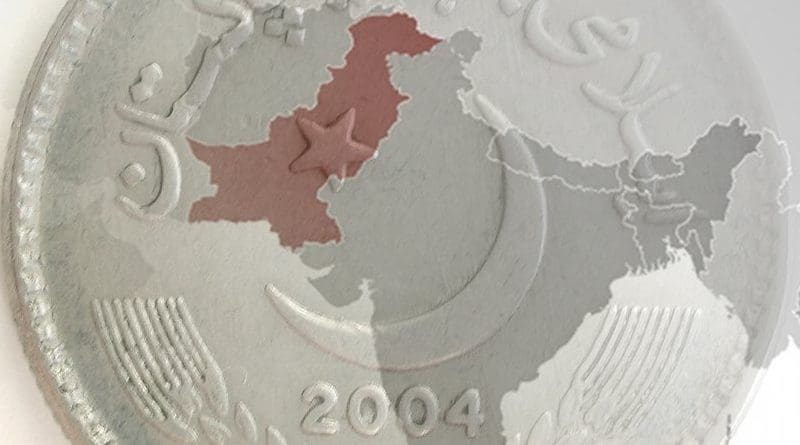Pakistan’s Path To Prosperity – OpEd
By Dr. Sahibzada Muhammad Usman
As Pakistan charts its future roadmap, it faces a multitude of challenges across various sectors, including economic, social, environmental, and political spheres. To address these challenges and harness the country’s potential for growth and development, a comprehensive and inclusive approach is necessary. Let’s delve deeper into the key areas that require attention and explore potential strategies for overcoming obstacles and seizing opportunities.
Pakistan’s economy has long been reliant on traditional sectors such as agriculture, textiles, and remittances. While these sectors continue to play a significant role, there is a pressing need for diversification to reduce vulnerability to external shocks and foster sustainable growth. One strategy for economic diversification is to promote innovation and entrepreneurship across various industries. This can be achieved through investment in research and development, the establishment of technology parks and incubators, and the provision of financial incentives for startups and SMEs. Additionally, targeted policies to support emerging sectors such as information technology, renewable energy, and biotechnology can create new opportunities for growth and job creation. Another aspect of economic diversification involves tapping into Pakistan’s rich natural resources in a sustainable manner. This includes the development of renewable energy sources such as solar, wind, and hydropower, as well as the promotion of eco-tourism and sustainable agriculture practices. By leveraging its natural assets responsibly, Pakistan can not only stimulate economic growth but also protect the environment for future generations.
Investing in human capital is essential for driving sustainable development and improving the quality of life for all Pakistanis. This requires a multifaceted approach that addresses key challenges in education, healthcare, and social welfare. In the education sector, there is a need to improve access to quality education, especially in rural and underserved areas. This can be achieved through the construction of new schools, the training and recruitment of qualified teachers, and the implementation of innovative teaching methods and technologies. Additionally, vocational training programs should be expanded to equip young people with the skills needed to succeed in a rapidly changing job market.
Healthcare is another critical area that requires attention, particularly in light of the ongoing COVID-19 pandemic. Pakistan needs to strengthen its healthcare infrastructure, enhance disease surveillance and response capabilities, and improve access to essential healthcare services, especially in remote areas. Investing in preventive healthcare measures and promoting healthy lifestyles can also help reduce the burden of disease and improve overall well-being. Social welfare programs should be designed to provide support to vulnerable populations, including women, children, the elderly, and persons with disabilities. This may include cash transfer programs, food assistance, and access to affordable housing and utilities. By prioritizing social development and human capital investment, Pakistan can build a more inclusive and resilient society.
Pakistan is highly vulnerable to the impacts of climate change, including extreme weather events, water scarcity, and natural disasters. Addressing these challenges requires urgent action to mitigate greenhouse gas emissions, adapt to changing climatic conditions, and protect natural ecosystems.
One key strategy for environmental sustainability is to transition to clean and renewable energy sources. This involves expanding the use of solar, wind, and hydropower, as well as investing in energy efficiency measures and grid modernization. By reducing reliance on fossil fuels, Pakistan can not only mitigate climate change but also improve air quality and public health. Water management is another critical issue that requires attention, given Pakistan’s dependence on irrigation for agriculture and the growing scarcity of freshwater resources. Sustainable water management practices, including rainwater harvesting, watershed management, and water conservation measures, can help ensure water security for future generations. Furthermore, protecting natural ecosystems such as forests, wetlands, and coastal areas is essential for biodiversity conservation and climate resilience. This may involve establishing protected areas, implementing reforestation and afforestation initiatives, and promoting sustainable land use practices.
Effective governance and institutional reform are fundamental to the success of Pakistan’s development agenda. This includes enhancing transparency, accountability, and the rule of law, as well as strengthening democratic institutions and processes. One key area for reform is the judicial system, which plays a critical role in upholding the rule of law and ensuring access to justice for all citizens. Pakistan needs to invest in judicial capacity-building, improve court infrastructure, and expedite the resolution of legal disputes. Additionally, efforts to combat corruption and improve public sector efficiency are essential for fostering trust in government institutions and promoting economic development. Political stability and social cohesion are also essential for sustainable development. Pakistan should work towards promoting inclusivity, tolerance, and respect for diversity, while also addressing underlying grievances and inequalities. This may involve dialogue and reconciliation efforts, as well as measures to empower marginalized communities and promote social cohesion.
Ultimately, Pakistan’s future roadmap must prioritize economic diversification, social development, environmental sustainability, and governance reform. By addressing these key areas comprehensively and inclusively, Pakistan can unlock its full potential and build a brighter future for all its citizens. It will require collaboration and commitment from government, civil society, the private sector, and the international community, but the rewards of a more prosperous, equitable, and sustainable Pakistan are well worth the effort.

